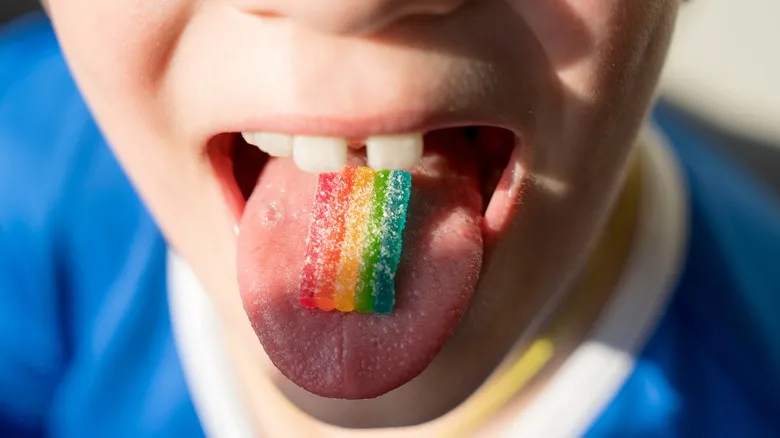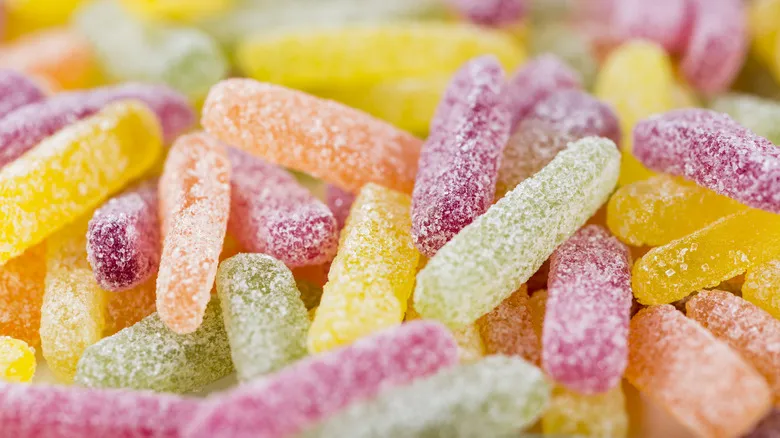Can I really burn my tongue on it?

There are particularly persistent rumors that sour candies, such as Black Death, can actually burn the taste buds off your tongue. This sensation arises because the acids in sour candies—especially those that are extremely sour—irritate the tongue in a manner akin to the effects of chiles or spicy foods. In truth, your taste buds are probably not being burned; it merely feels that way. Nonetheless, there have been instances where sour candy seems to cause a burning sensation on consumers' tongues. A notable example occurred in 2020 when model and cookbook author Chrissy Teigen, driven by pregnancy cravings, indulged in a significant amount of sour candy and shared a video online showing her tongue, which appeared patchy, discolored, and somewhat alarming.
While such burns are generally considered unlikely, they may be more feasible with highly acidic sour candies like Mega Sours. There are isolated reports of individuals—often children—experiencing these burns from sour candies like Black Death or Warheads. However, these accounts can sometimes be exaggerated, and there is typically no lasting damage: after all, these candies are permitted for sale in places like the U.S., although some come with warnings indicating they may not be suitable for younger children, who might be more sensitive to the acidity. It's not just Black Death that carries warnings; certain Warheads candies are advised for children over the age of four. Regardless, any damaged taste buds should regenerate within a few days.
The other danger of sour candy

It's likely no surprise to anyone that dentists generally aren't fond of candy, as sugary treats are notorious for causing tooth decay and cavities. However, they often express particular disdain for sour candy due to its acidic nature—this disapproval applies to all sour candies, not just the extreme varieties like Black Death.
Here's the reason: The sour flavor we experience is essentially our taste buds reacting to acid. Sour candies typically contain citric acid to deliver that tangy kick, but the downside is that this acid can erode your tooth enamel, which serves as a protective barrier against cavities and decay. When the acid from the candy breaks down your enamel, it increases the risk of dental damage.
While regular candy also contributes to tooth decay, it does so in a more indirect manner. The sugar in non-sour candies interacts with oral bacteria to produce acid, which weakens your enamel. However, the additional acid in sour candies amplifies this effect, which is why dentists particularly dislike them. To safeguard your teeth from potential harm, the best approach is to avoid sour candy altogether. If you do indulge, you can minimize damage by not letting the candy linger in your mouth for too long (which allows the acid more time to work) and by rinsing your mouth with water or milk immediately afterward to neutralize the acidity.
Recommended

Ludo Lefebvre's Secret Ingredient For Perfect French Onion Soup

Custard Vs Soft Serve Ice Cream: What's The Difference?

Why You Can Revive Fruitcake That's Been Sitting For Years

The No-Fail Blender Method For Quick, Easy Hollandaise Sauce
Next up

